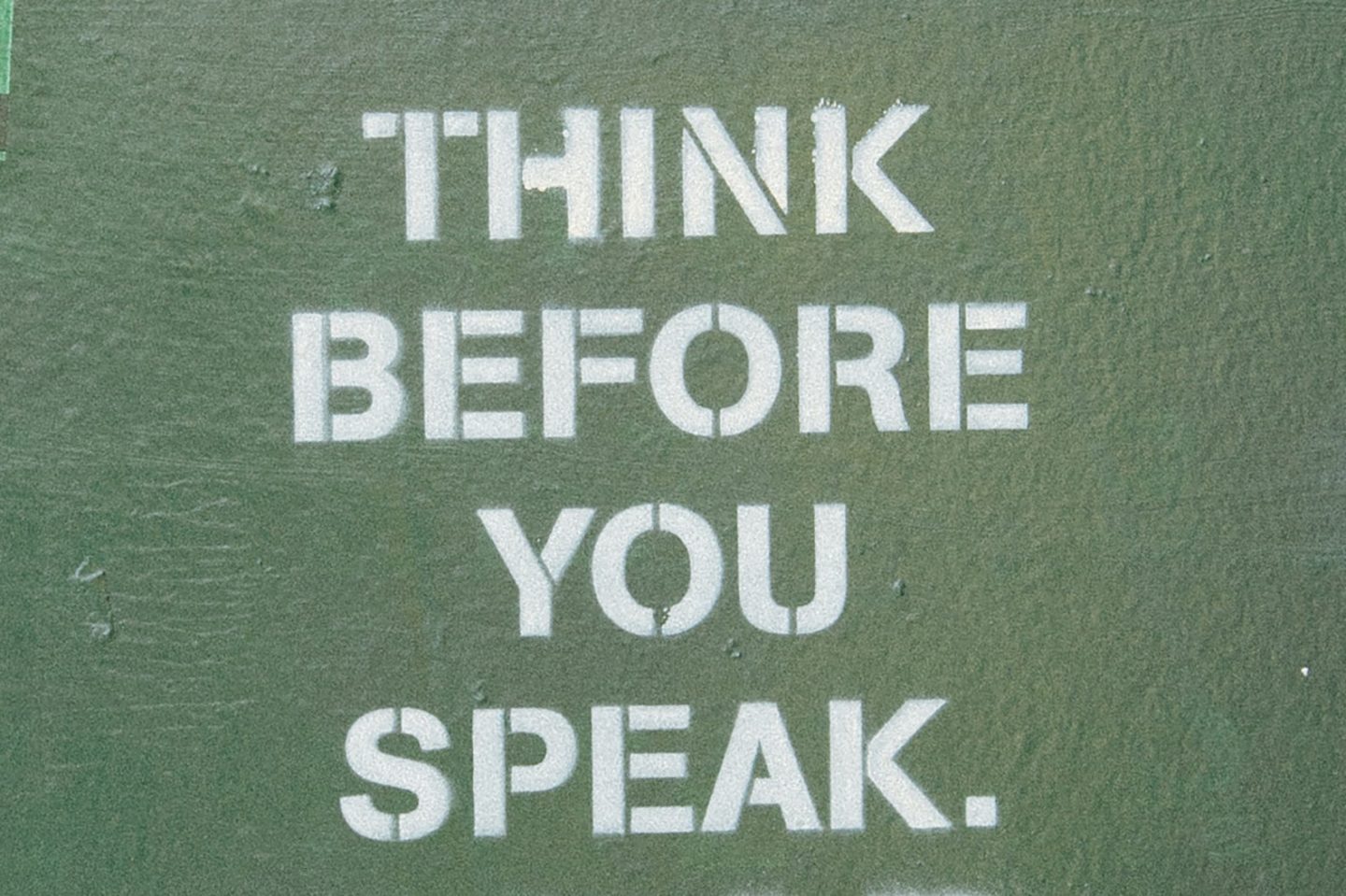I was never crude growing up, but I was very quick with my words.
I aired my mind freely, frequently making jokes at others’ expense. I offered my opinions though no one asked for them. Whether I was in the classroom or cell group, I’d ensure my perspectives were always heard – leaving little room for others to speak.
I got such a kick out of making snarky remarks and rude jokes, never understanding how hurtful such actions could be for the receiving parties.
WOE IS ME
A couple of years ago, I came before the Lord boldly asking Him to deal with any area of my heart that needed to be cleansed. But I was not expecting my prayer to be answered so quickly: The Lord told me of the need to cleanse my lips.
From that moment, I began to learn how hurtful I could be with my words. I learnt to intentionally incline my ears to the Holy Spirit, asking Him to intervene whenever negative words were about to leave my lips.
And over time, it felt as if a spiritual censor had been placed on my lips. For every time I thought of an unnecessary joke or nasty comment, the Holy Spirit would lay these two questions upon my heart:
- Is what I’m about to say, edifying?
- Am I saying this out of sin?
CARELESS WORDS
A father’s words to his son are some of the most powerful ones he will ever hear, especially when he’s growing up.
Think about these two phrases: “You are good for nothing” and “I’m proud of you, son”. The trajectory of the son’s life depends on which of these two things the father consistently tells him.
Likewise a friendship that is suffering can either be broken or mended depending on what is said. We get to choose between an ignorant “I don’t care”, or a persistent “I’m still with you.”
Each time we speak, we pick up a knife: We can either use it to stab or sharpen someone … Like a knife, our speech must be handled with care.
It’s incredible to think how many verses there are in the Bible that touch on our speech, especially in James 3 and the entire book of Proverbs. Ephesians 4:29 says, “Let no unwholesome word proceed from your mouth, but only such a word as is good for edification according to the need of the moment, so that it will give grace to those who hear.”
Given the constant Biblical reminders to be slow to speak and to speak with wisdom, we must acknowledge the gravity attached to each and every word which leaves our lips.
UNCLEAN LIPS
There are two vivid instances that come to my mind when I think about my wrestle with speaking edifyingly.
A few years ago, I was dining at an Italian restaurant with a group of friends, of whom one did not like seafood. As we were choosing which pizzas on the menu to order, I candidly shrugged off my friend’s dietary requirement with a laugh and said, “Aiyah, don’t care about about him lah – let’s just order the seafood pizza.” The evening went on splendidly, until I found out later that my friend was very hurt by what I had said.
This other incident took place when I was Secondary Four: My mother had picked me up from school and was reminding me to help out with the house chores. I was tired from school and agitated by her nagging, so I snapped at her: “But that’s your job.”
Tears welled up in her eyes.
It struck me then that words cannot be taken back, and I was filled with regret – my laziness and selfishness had torn my mum’s heart apart. It still serves as a reminder today to speak with gentleness and caution.
In these instances, my words were hurtful and uncalled for. I was selfish and proud, valuing my preferences over others’.
THE HEART OF SPEECH
Increasingly, I see how our words are a reflection of who we are and what we value.
Every word that comes out from our mouths reveals our character and even sin. Every unkind and unedifying word stems from our own ugliness within — whether it’s pride, bitterness, unforgiveness or jealousy.
Some phrases I now omit from my life are: “You mean you don’t know?” That comes from a place of pride. Another is, “Shut up lah”. That’s me simply telling someone I don’t care what he’s about to say. And I also avoid making jokes which put people down, only to end it off with a “just joking” (Proverbs 26:18-19).
Each time we speak, we pick up a knife: We can either use it to stab or sharpen someone. It applies to us as well, in terms of how we think of ourselves.
My speech is still a work-in-progress, and the Lord’s kindness has always led me to repentance in this area of my life. I long to live a life that edifies and builds up those around me, and this means that sometimes it is better to say nothing at all – rather than to speak loosely with foolishness. Like a knife, our speech must be handled with care.
Let us exemplify love with our words, continually calling out the best in those around us and learning to pull back our tongue from malice.
“When words are many, sin is not absent. But he who holds his tongue is wise.” (Proverbs 10:19)
This article was first published on Selah.sg and was republished with permission.









